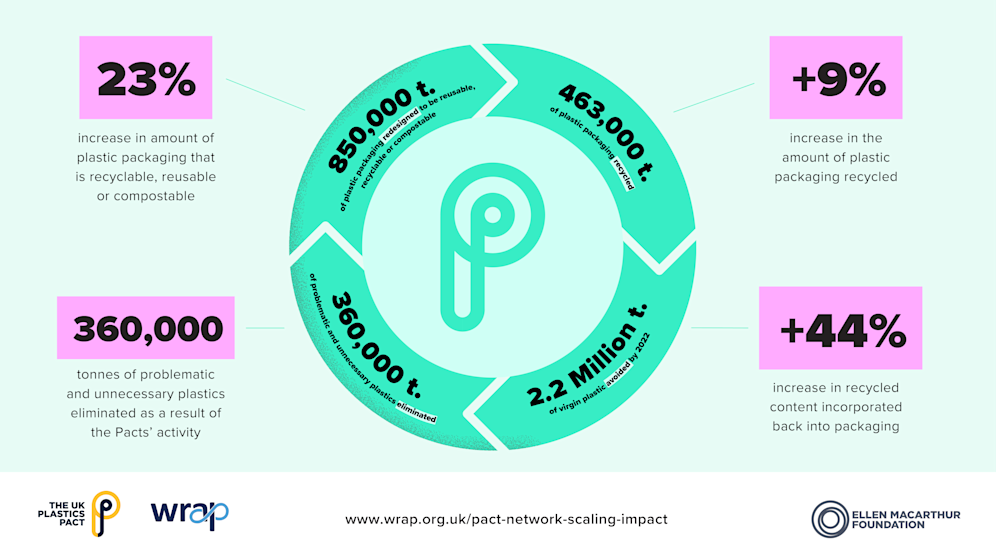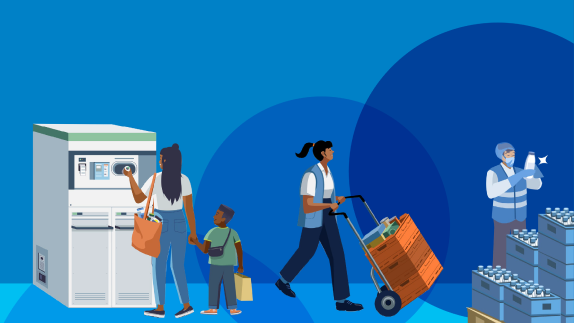Six years in, Plastics Pacts are a proven model for tackling plastic pollution.
Thanks to Plastics Pacts, tens of billions of problematic or unnecessary plastic items have been eliminated; design for reusability, recyclability, and composability in practice and at scale has increased by 23%; and incorporation of recycled content back into packaging has increased by 44%.

Today, there are a dozen Plastics Pacts in countries representing over 2 billion people and spread across all continents, forming a global network with a proven track record of delivering real impact towards eliminating plastic waste and pollution.
The Ellen MacArthur Foundation, in collaboration with WRAP, is excited to present our new report titled "Scaling Impact: The Plastics Pact Network’s Six-Year Journey Towards Eliminating Plastic Pollution and Waste." This report shares the impact and lessons learnt from the past 6 years of the Plastics Pact Network and highlights their ongoing role in driving local, collaborative action around the world, informing and complementing national policy and a Global Plastics Treaty.
The full report and a detailed case study annexe are now available to download.
Here's what we've learned:
Plastics Pacts are well-established platforms for collaboration, evidence-based knowledge creation, as well as sharing and creating transparency. Our model has yielded tangible results on the ground, fostering a robust network of stakeholders committed to accountable action at national, regional, and global levels.
The Plastics Pact Network is demonstrating the swift and impressive impact that can be achieved through collaborative voluntary action, but this is not enough. The learnings so far reinforce the need for additional, and more ambitious, binding policy measures, as well as accelerated voluntary business action. This cannot be an either/or: both are crucial to tackling plastic waste and pollution at the pace and scale required.
The Plastics Pacts are uniquely placed to inform and support in implementing a future Global Plastics Treaty at national level. The Plastics Pact Network offers a proven means of engaging stakeholders in the plastics value chain, and helping them to make the changes that are needed, at pace.
Full report












